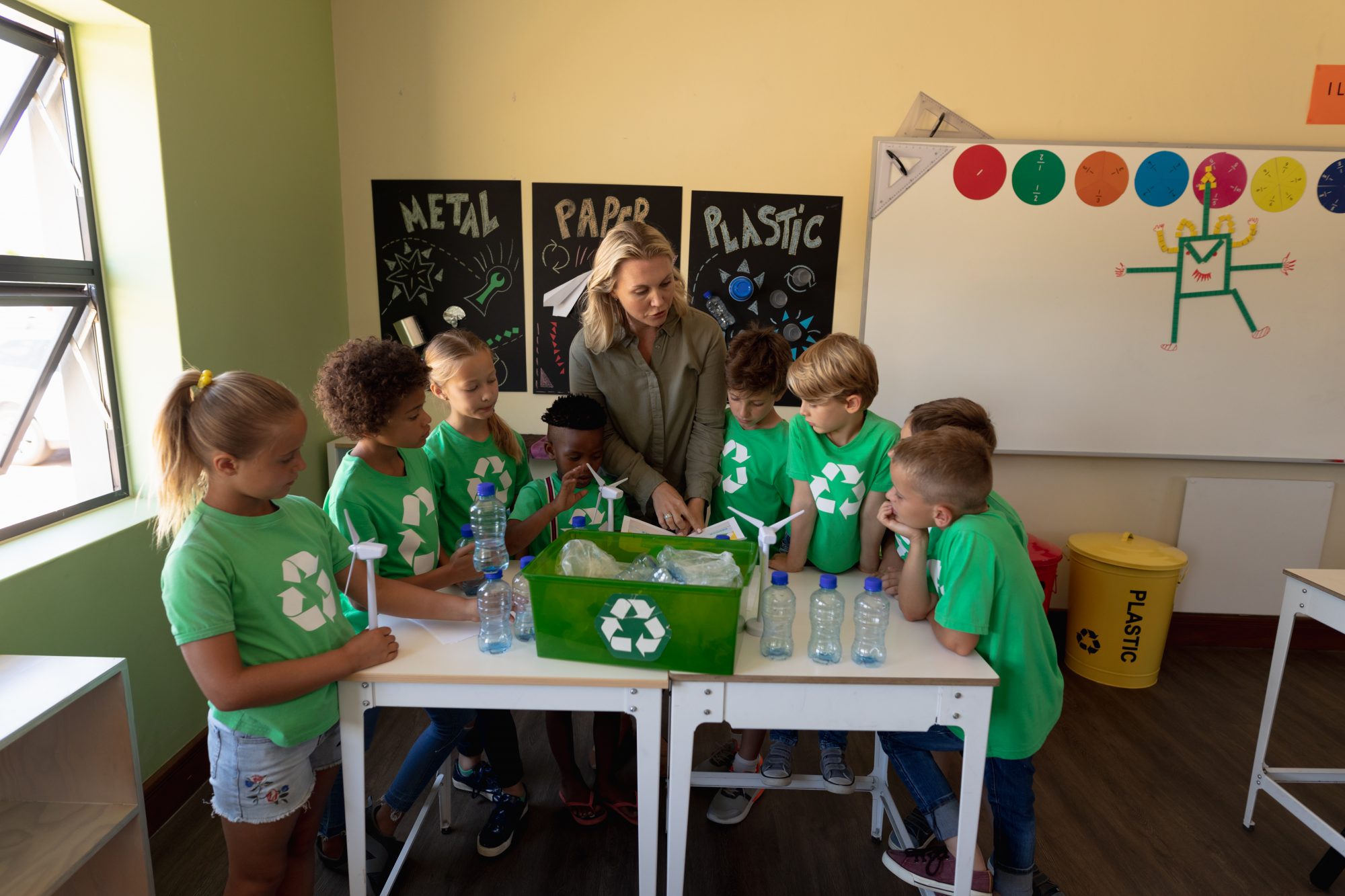Jenna Pipchuck, Executive Vice-President Chief Sales Officer at SMART Technologies discusses the role that ICT can play in the Department for Education’s Sustainability and Climate Change strategy
The government’s ambitious net zero targets have seen entire sectors reassess their ways of working, introducing new strategies and roadmaps to help them eventually achieve decarbonisation – and education is no exception.
Reaching our net zero targets is a challenging task for government and local authorities. It is estimated that over a third (36%) of total UK public sector building emissions come from schools and universities. What’s more, inefficient buildings and outdated technology is costing schools around £630m a year in energy bills. A staggering figure which will no doubt rise as the cost of energy increases.
To address these issues, the Department for Education published its highly anticipated Sustainability and Climate Change strategy in April. As well as a host of measures relating to existing and new build schools infrastructure, the DfE’s policy also focuses on ensuring the national curriculum now includes environmental subjects and topics.
Department for Education: Climate Education
Education is critical to fighting climate change. Young people are more concerned about climate change and its effects on the planet than any other generation. As a result, educators have a huge responsibility in preparing young people for a changing world – ensuring they understand the climate situation and are well equipped with the right knowledge and skills to make a difference. Engaging students with the world we live in will allow them to better understand climate change and the importance of sustainability, instilling important values around best practice to protect it, and ultimately, inspiring action.
To achieve a well-rounded education on climate issues, the DfE will provide teachers with the necessary training and support. Research by Teach The Future found that to date, almost three quarters of teachers (70%) feel they haven’t received adequate training to teach about climate change themselves. Therefore, providing teachers with the resources required will be critical in ensuring students are connected with the environment and motivated to make a difference for themselves.
However, this does require much collaboration and dedication from the UK education system. There is a huge role to be played in raising awareness of climate issues and investing time into completing training needed to deliver lessons. Schools will need to provide students with the building blocks to grasp the meaning and importance of sustainability, and the causes and impacts of climate change.
In line with the continuous professional development courses and training strategies laid out within the Department for Education’s paper, teachers will be asked to incorporate activities and resources that will increase understanding and empower young people, helping them to take accountability and make positive changes to improve the planet.
Decarbonising the Education Estate: net zero targets
In a move to actively encourage schools towards zero-carbon, the DfE’s strategy proposes that by 2023, all new school buildings will be net zero in operation. They will also be implementing retrofits (including LED lighting, insulation, eco heating and cooling systems) and increasing biodiversity.
The target for all education estates to become net zero in operation is ambitious and will require schools to review every corner of their buildings to make efficiencies. ICT will play an important role here, ensuring outdated and carbon intensive technologies are updated with more efficient alternatives.
Schools and trusts must re-evaluate their practices and ask themselves whether their current ICT strategy is designed for longevity and energy-efficiency. The only way to assess this accurately is for schools to measure it themselves and consider how much carbon is generated per pupil. For example, comparing their energy usage of often-used technology such as interactive displays in classrooms will help schools make informed energy-conscious decisions. SMART’s interactive panels, for example, are particularly effective in reducing power consumption and increasing energy savings, with panels using over 50% less energy and saving up to 52% on energy costs, on average, compared to other panels on the market.
Operations and Supply Chain
In-line with their sweeping sustainability measures, the DfE is also urging schools to choose suppliers with greener supply chains.
Schools will need to scrutinise their current operations and make judgements as to whether certain equipment or services are truly required within their establishments. Schools will also be required to embed sustainability in their buying decisions and ensure green frameworks are available to support sustainable purchasing.
Simply put, the sector needs to become savvier when sourcing new products and services for their schools. Some key things to look out for are: slim-line packaging that is 100% recyclable, responsible end of life practices and products which are ISO 14001 certified – meaning they operate an Environmental Management System.
Through discerning and inquisitive procurement, schools can make greener choices, resulting in more eco-conscious operations and supply chains.
There isn’t a sector untouched by the climate-focused action, and organisations across the public and private sector are having to overhaul their strategies to limit their impact on the environment. By making sure our education system is equipped with efficient ICT that supports wider sustainability learning, we can be confident the DfE’s net zero ambitions are one step closer to being met.











